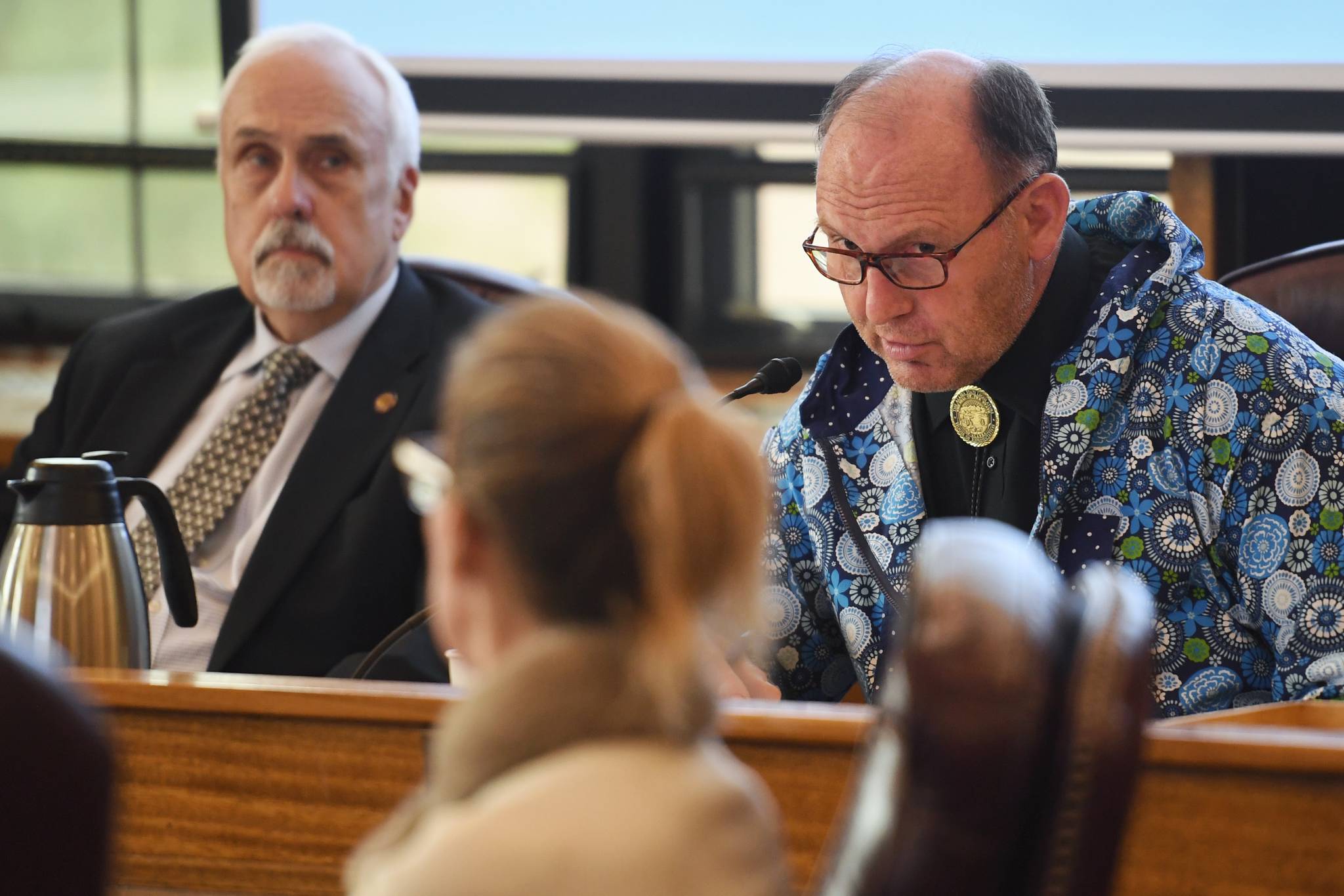For the second day in a row, representatives from the Office of Management and Budget sat before a panel of lawmakers answering questions about the once obscure financial process known as “the sweep.”
The sweep is a process that occurs at the end of every fiscal year on June 30 when the funds from the myriad savings accounts the state has are automatically moved into the Constitutional Budget Reserve. In the past, the legislature has been able to obtain the two-thirds vote necessary to reverse the sweep. Under those circumstances the sweep in reversed almost instantaneously and therefore goes unnoticed.
This year was different for two reasons. One being that the legislature failed to finalize to obtain a two-thirds vote to reverse the sweep. Secondly Gov. Mike Dunleavy expanded the list of accounts covered by the sweep, so this year even more money was drained into the CBR.
“Anything that’s swept into the CBR can’t be pulled back out without a two-thirds vote,” said Rep. Gary Knopp, R-Kenai, following a meeting of the House Finance Committee Friday. The Committee had just spent almost an hour putting questions to OMB Budget Director Paloma Harbour, who answered questions about which funds were swept, what accounts were funded, and where the money was coming from. At times during the meeting, OMB Director Donna Arduin stepped in to answer questions.
“They’re funding anything that they do with (unrestricted general fund) dollars,” Knopp said. “Because that doesn’t require a two-thirds vote.”
On Thursday and Friday, OMB gave presentations to Senate and House Finance Committees respectively where lawmakers asked a series of questions trying to determine the impacts of what not reversing the sweep would mean.
During Friday’s House committee meeting, representatives also looked at House Bill 2002, written by the governor’s office and introduced through the House Rules Committee. HB 2002 is a rival appropriations bill to HB 2001, which the legislature has been working on for the past week. HB 2001 would restore all of the funds cut by Dunleavy’s line-item vetoes to the state budget, as well as reverse the sweep.
HB 2002, provides funding, but not nearly as much. Many programs will remain unfunded but there will be enough money to obtain federal matching funds for infrastructure projects.
But while 2002 does restore some funds and allows the state to capture federal funds, it does not contain language to reverse the sweep, leaving many legislators concerned about what they feel are critical programs. Among the programs that have had their funds swept for the first time are the Alaska Performance Scholarship and the Power Cost Equalization program. APS provides scholarships for students to attend university in the state while PCE subsidizes heating costs for Alaskans in rural areas.
Harbour told the committee today that HB 2002 uses money from the Unrestricted General Fund to pay for PCE.
But many legislators still have their concerns and disagreements with OMB over what funds are even able to be swept. Legislative Finance Division Director David Teal gave a presentation yesterday outlining his concerns.
After Friday’s meeting, Rep. Bart Lebon, R-Fairbanks said he felt not reversing the sweep would be far too damaging to the state.
“I think Mr. Teal’s presentation and his commentary should give legislators pause,” Lebon said. Lebon said that there were legitimate concerns over how accounts were managed, but that was a debate for a different time.
“If you have issues with some of those accounts and some of those dollars on a long-term argumentative basis, that to me is a separate debate,” Lebon said. “But to allow all of these programs to die for lack of the reverse sweep is draconian, and it’s going way beyond what’s reasonable in my mind.”
• Contact reporter Peter Segall at 523-2228 or psegall@juneauempire.com.

